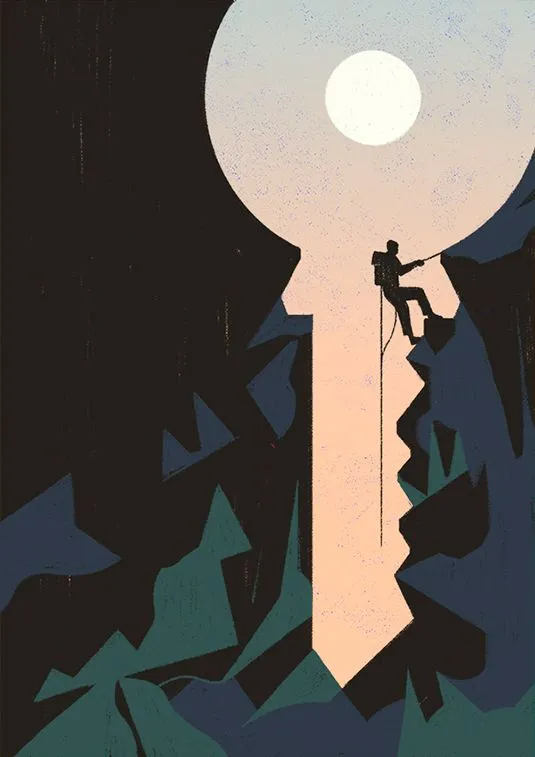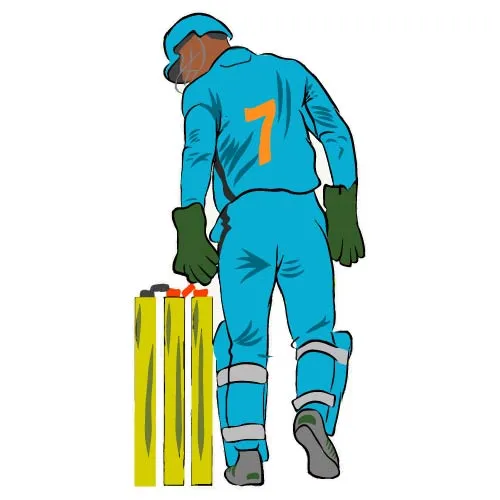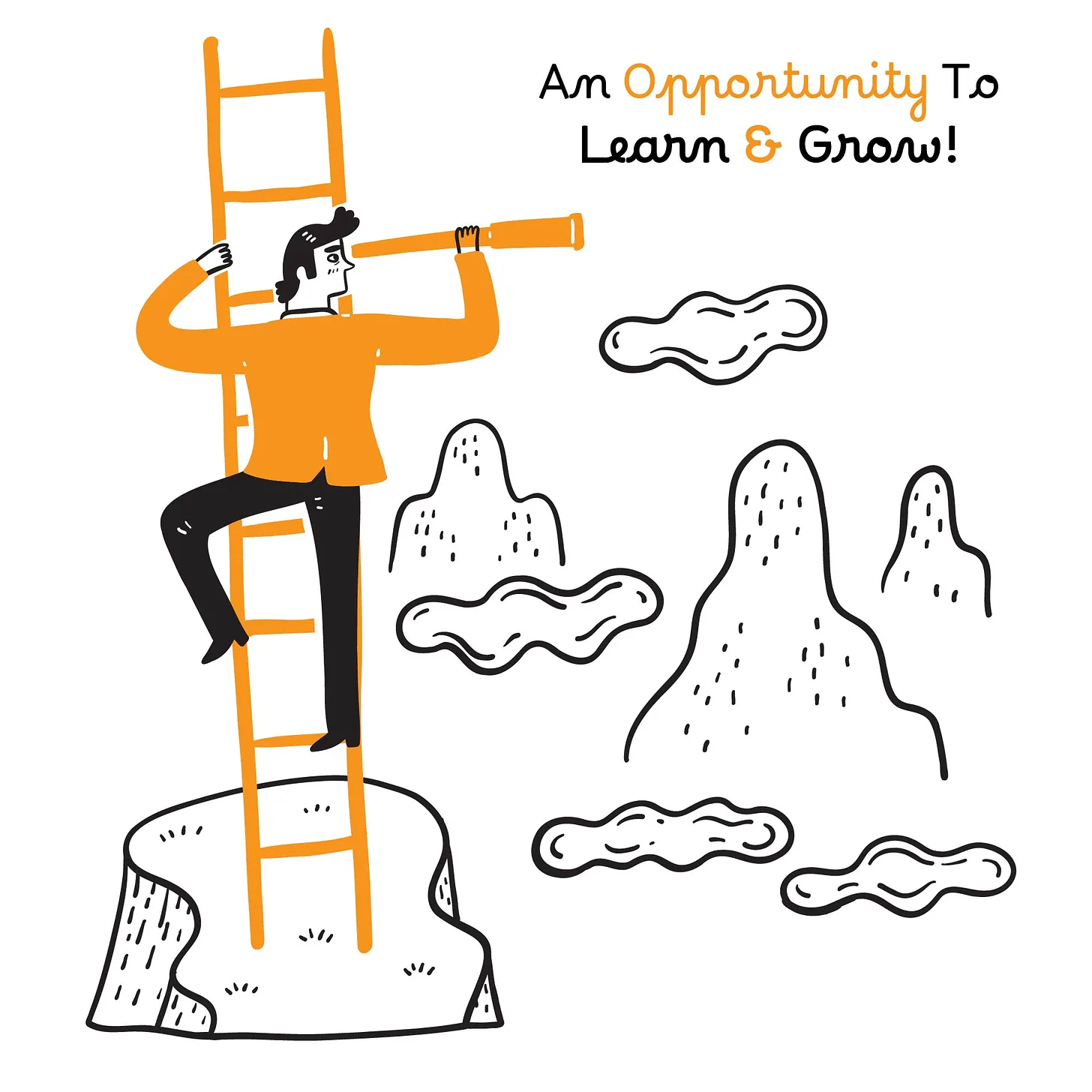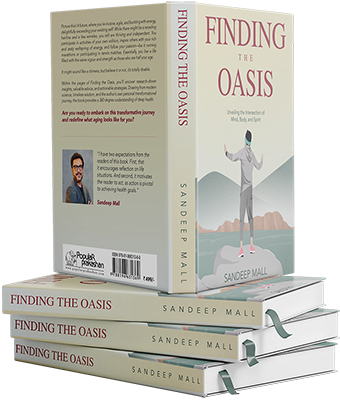Unlocking the Power of Fear
Embracing Evolutionary Insights for Success – Issue 103 (6 min read)

Nature offers us many lessons, if only we take the time to observe and reflect. In his captivating account of his time on the Galápagos Islands, Charles Darwin wrote in his book, The Voyage of the Beagle, about the indigenous birds’ surprising tameness. These creatures had no inherent fear of humans, an oddity that perplexed Darwin. Upon deeper consideration, he realised these birds had never been exposed to predators, making their fearless behaviour an evolutionary consequence of their environment.
In the absence of threats, these birds hadn’t developed the same instincts of caution that the birds living near humans had. Essentially, they hadn’t learned fear because they had no reason to

Sports is not just about playing but also about the psychological battles that play out. We have seen it many times in Indian Cricket with various teams but the recent 2019 Cricket World Cup semi-final between India and New Zealand offers a case in point.
India, having dominated the tournament, faced New Zealand, a team that had scraped through to the semis. The odds seemed in India’s favour, but the match outcome told a different story. India’s top order, which had been the pillar of their campaign, collapsed under pressure. The team, despite having seasoned players, appeared to be in the grip of a paralysing fear.
After winning the toss and choosing to bat, New Zealand posted a seemingly modest total of 239/8 in 50 overs, a target that many believed was within India’s reach given their strong batting line-up.
India’s chase started disastrously. The top three, Rohit Sharma, KL Rahul, and Virat Kohli, who had been in prolific form throughout the tournament, were dismissed for just 1 run each, leaving India struggling at 5/3. Dinesh Karthik soon followed, making it 24/4. Despite a heroic 77 by Ravindra Jadeja and a gritty 50 by MS Dhoni, India was bowled out for 221, falling 18 runs short of the target.
On the other side, New Zealand, perhaps perceived as underdogs and therefore with lesser pressure, played with a calm determination, seemingly devoid of the fear that plagued the Indian side.

Understanding Fear’s Biology
Humans are no exception to this. Consider the case of SM (identity protected), a woman unable to feel fear due to a lesion in her Amygdala, a part of the brain that’s most closely associated with fear, emotions, and motivation. Despite facing multiple dangerous situations, including confrontations at knifepoint and gunpoint, near-fatal domestic violence, and several death threats, her reactions lacked the typical signs of panic, urgency, or distress usually seen in such scenarios.
Indeed, fear serves a protective function, and we’d naturally want our loved ones to have this instinct. Like Darwin’s birds, humans have evolved with fear as a crucial survival mechanism. When faced with threats, our primal instincts – Fight, Flight, or Freeze – kick in. While these responses are useful when faced with a predator, they can be counterproductive in a sports match or life. In cricket, the real challenge is not physical danger but the weight of expectations, potential for public judgment, and internal pressures to perform. When the stakes are high, the fear of failure can activate those same primal instincts, making players freeze or make impulsive decisions.
Balancing fears protective and limiting facets poses a dilemma. How can we navigate this conundrum?
Redefining Failure
So, how does one overcome this debilitating fear? The answer might lie in reshaping our understanding of failure. Instead of viewing failure as a dent to one’s reputation or self-worth, seeing it as a steppingstone or a learning opportunity can transform the landscape of fear. After all, every great player has faced defeats and made mistakes, only to come back stronger.
What distinguishes Captain Cool Dhoni from any player of this generation, isn’t just his cricketing acumen but his calm demeanour in the face of adversity. Be it the final over of a nail-biting match or a crucial decision review, Dhoni always appears unfazed.

Where most players might feel the weight of expectations, Dhoni transformed it into an opportunity to excel. He approached high-pressure situations with a composed mindset, assessing situations logically rather than emotionally. By doing so, he redefined the concept of fear in cricket. Instead of seeing pressure as a threat, he viewed it as a challenge, an opportunity.
Chris Coleman, a football manager, once remarked, “Don’t be afraid to fail… If you work hard enough and you’re not afraid to dream, then you’re not afraid to fail.”
The sentiment is universal and applies to everything. By reframing failure as a stepping stone rather than a dead end, we can navigate life’s challenges with a liberated mindset, unburdened by fear.
Like the birds of the Galápagos, we must understand our environment and the true nature of the threats we face. The fear of judgment, ridicule, or failure can hold us back. However, by redefining failure and embracing every experience as an opportunity to learn and grow, we can free ourselves from the paralyzing grip of fear. Fear is not an outsider but a partner, guiding our steps and testing our resolve. The journey to redefine fear is, in essence, an invitation to a more empowered and authentic self.

Pause & Reflect
How has fear influenced the decisions you’ve made in life? Can you recall a time when fear prevented you from taking a step you later regretted?
How do you typically cope with fear? Are these strategies effective in the long run?
How do you currently define fear? How can you reshape this definition to make it more empowering?
Cover illustration by Chiara Ghigliazza
All illustrations are by Kratika Singhal




